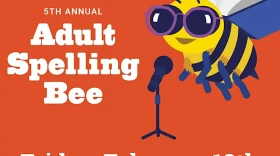A report earlier this year from the Wisconsin Taxpayers Alliance estimated that Wisconsin’s prison population will hit a record level by 2019. The number of inmates had fallen somewhat since it reached its high point of over 23,000 a decade ago, but has risen again in recent years. The nonpartisan group says harsher penalties are largely to blame.
The issue of overcrowded prisons and jails exists around the country, and writer Peter Edelman says the real phenomenon going on is the criminalization of poverty. Edelman teaches law at Georgetown University and was a former policy advisor to Robert Kennedy. His new book is called Not a Crime to Be Poor.
Although debtor's prison don't officially exist today, Edelman says, they are still very much alive in practice.
"We're [still] doing it," he says. "We kind of woke up to it, I think, around the country, when Ferguson, Missouri happened, the terrible tragedy of the killing of Michael Brown. When people took a look at it, they discovered that the way the city there was surviving, getting it's money, was abusing its residence with crazy fines and fees."
"When the New York Times and other journalists started discovering that it's all over the country: you can't pay the fine so they throw you in jail, and there you have the debtor's prison."
He adds, "Particularly in the courts, they said 'Oh, what a good idea,' [to have high fines]. It became this cash cow." So, he says the courts' acceding to the fact that the people being brought through the criminal justice system are paying for it.
In his book, Edelmen discusses the U.S. Supreme Court case Bearden v. Georgia. He says, "The case says that if you're guilty of [an ordianance violation], and it only allows for fines, if they decide that you're not paying and they put you in jail, Bearden says that's unconstitutional."
Edelman says many municipal court judges around the country do not know about Bearden, and that there are also are ways to get around it. "All that [the officials] have to do, is say to the person, 'You're guilty, you can't pay, we'll give you a payment plan.' So when you can't pay they come after you...and then it piles up because [you] miss a payment, get a bench warrant, and then [you]'re guilty of contempt, and that's not a Constitutional problem."
Additional systemic problems for the justice-involved poor include, he says, lack of access to legal representation in certain areas and the prohibitive cost of representation, including sometimes defendants who are unable to afford public defender fees.
When it comes to cash bails, he says, "If the family can't come up with the money, [sometimes the person charged] pleads guilty [when they would otherwise contest their innocence]. Money bail plays a very, very big role in all of this, and that's not just about the fines and fees."
Peter Edelman was recently in Milwaukee for an event at Boswell Book Company in partnership with Community Advocates’ Public Policy Institute.





